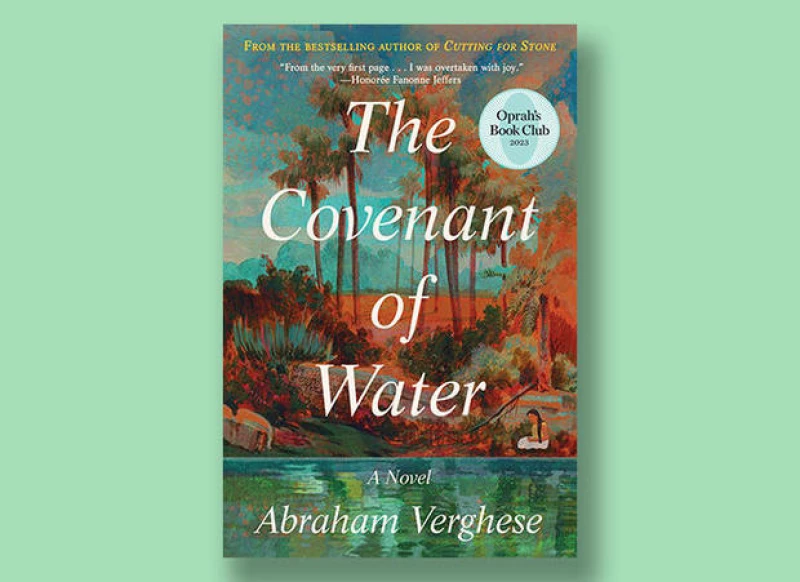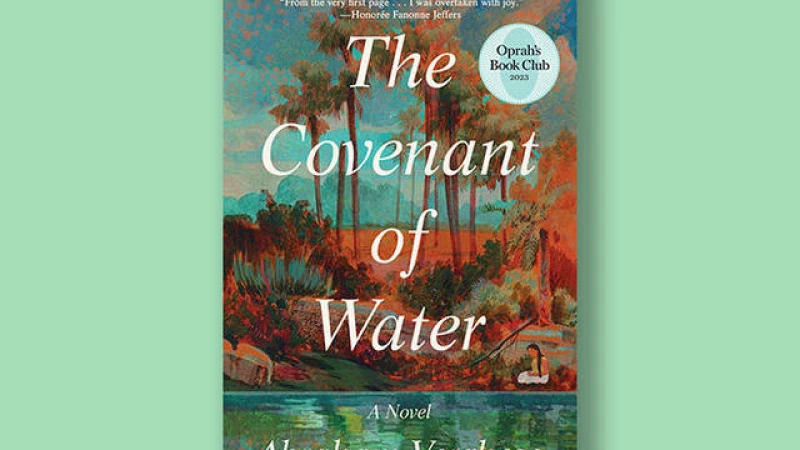
We may receive an affiliate commission from anything you buy from this article.
Dr. Abraham Verghese teaches medical students at Stanford University's School of Medicine. But he has another calling: author. His novel "The Covenant of Water" (Grove/Atlantic), a multi-generational tale of a family in India experiencing love and tragedy, was a New York Times bestseller, and an Oprah's Book Club pick.
Read an excerpt below, and don't miss Tracy Smith's interview with Abraham Verghese on "CBS Sunday Morning" April 21!
"The Covenant of Water" by Abraham Verghese
Prefer to listen? Audible has a 30-day free trial available right now.
1900, Travancore, South India
She is twelve years old, and she will be married in the morning. Mother and daughter lie on the mat, their wet cheeks glued together.
"The saddest day of a girl's life is the day of her wedding," her mother says. "After that, God willing, it gets better."
As the night falls, she listens to the symphony of sounds around her. From the wooden walls exhaling the day's heat to the scuffing sound of the dog in the sandy courtyard outside, the noises of the night create a chaotic melody. Soon, her mother's sniffles give way to steady breathing, then to the softest of snores, bringing a sense of order to the disarray.
Amidst the night's cacophony, a brainfever bird pierces the air with its call: Kezhekketha? Kezhekketha? Which way is east? Which way is east? The girl envisions the bird surveying the landscape from above, observing the lagoon, the creek, and the paddy field. Its relentless cry disrupts the peace, but suddenly, it is silenced, as if startled by an unseen threat. In the ensuing stillness, the creek's murmurs offer no comfort, only a restless rumble over the smooth pebbles.
Before the break of dawn, she rises from her slumber while her mother continues to rest. Outside, the paddy field glistens like silver under the early light. Her father's empty ornate charu kasera on the verandah beckons to her, and she settles into the chair, feeling his presence lingering in its intricate design.
Along the lagoon's edge, four coconut trees lean towards the water, their fronds skimming the surface before reaching skyward. Goodbye, lagoon. Goodbye, creek.
"Molay?"
Her father's only brother had said the previous day, to her surprise. Of late he wasn't in the habit of using the endearment molay—daughter—with her. "We found a good match for you!" His tone was oily, as though she were four, not twelve. She knew her uncle had been looking to get her married off for a while, but she still felt he was rushing to arrange this match. What could she say? Such matters were decided by adults. The helplessness on her mother's face embarrassed her. She felt pity for her mother, when she so wanted to feel respect. Later, when they were alone, her mother said, "Molay, this is no longer our house. Your uncle ..." She was pleading, as if her daughter had protested. Her words had trailed off, her eyes darting around nervously. The lizards on the walls carried tales. "How different from here can life be there? You'll feast at Christmas, fast for Lent ... church on Sundays. The same Eucharist, the same coconut palms and coffee bushes. It's a fine matc ... He's of good means."
Why would a man of good means marry a girl of little means, a girl without a dowry?
What are they keeping secret from her? What does he lack? Youth, for one—he's forty. He already has a child. A few days before, after the marriage broker had come and gone, she overheard her uncle chastise her mother, saying, "So what if his aunt drowned? Is that the same as a family history of lunacy? Whoever heard of a family with a history of drownings? Others are always jealous of a good match and they'll find one thing to exaggerate."







